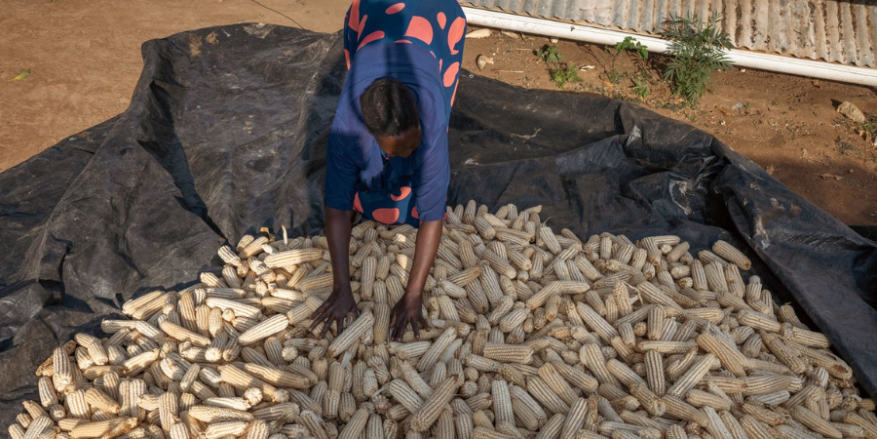Maize yields in Malawi are expected to fall significantly.
Dry weather conditions caused by El Niño have meant that 4.4 million people, that’s more than one in five people living in Malawi, faced crisis levels of food insecurity between June 2023 and March 2024, requiring urgent interventions.
That’s according to a newly published multi-agency report on the adverse impact El Niño weather changes have had in one of southern Africa’s poorest countries.
Self Help Africa joined eight other international organisations to prepare the El Niño Situation Report, which surveyed households across Malawi. It concluded that:
- 4.4 million people in Malawi, that’s around one in five people, experienced a food crisis between June 2023 and March 2024.
- Approximately 2.46 million people in the Southern Region required humanitarian aid during the lean season of February and March 2024.
- Around 85% of surveyed households reported being negatively affected by the dry weather.
- The prolonged dry spells induced by El Niño affected agriculture production, water scarcity and education, with some schools reporting pupil absence rates of up to 50% as parents were forced to choose between feeding their children or sending them to school.
- Declines in maize production – the country’s staple food crop – were expected to increase from 8.3% to 20% in 2024 due to El Niño conditions.
- Malawi’s GDP was projected to decrease by 4.4% in 2024 as a result.
This year’s El Niño was accompanied by a strong Indian Ocean Dipole, which refers to changes to sea surface temperatures in the Indian Ocean. The phenomenon was blamed on a delay in the onset of customary seasonal rains in Malawi and prolonged dry spells.
Read the full ‘MALAWI – El Niño Situation Report 2024’.

